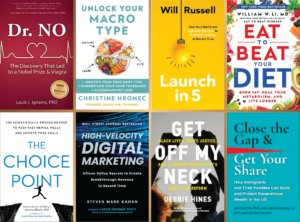How to Write ‘Acknowledgments’ for Your Book

Share
I had a client once, a first-time author, who didn’t realize they forgot to add an Acknowledgements page until the book was already out. No one at the major publishing house had caught it.
My client didn’t feel ungrateful. They just forgot to do it. In fact, I have yet to meet one author who hasn’t been grateful for the help they received in the process of writing and publishing their book. And since most of the help an author receives is behind the scenes, it’s important to express that gratitude in the actual text of the book.
Besides the embarrassment, the worst thing about forgetting to add Acknowledgements is when you later realize how easy it is to write.
So, let’s get into how to compose your Acknowledgments section.
Who to Mention
No one writes a book alone. Many people support an author’s effort. From the people closest to the author, including family who have given up time or focus to support the author, to a writing coach or collaborator, to a literary agent, your publisher and its staff…there are always a lot of people to thank.
Spouses, Children, & Other Family
We’ve had a lot of clients whose spouses have had to pick up a lot of slack in the day-to-day running of the household to give the author more time and bandwidth to write. That sort of effort and sacrifice should be acknowledged in the book. Further, if you have friends or family members who you’ve bounced ideas off of, or maybe some who have done a read-through of your manuscript and given you feedback, they too should be acknowledged.
Coaches, Editors, and Ghostwriters
Don’t forget those who assist in the actual writing–the book coaches, copy editors, and ghostwriters of the world.
(Pro tip: You don’t have to use the term “ghostwriter.” You can call them a “collaborator” in the acknowledgements.)
Agents and Publishers
Then, there are people on the industry side who have helped in the technical process. This includes your literary agent, editor, and supporting publishing house staff. It’s your publishing house editor who saw the potential of your book and advocated on your behalf to get the publisher to buy it. Obviously, you need to give them proper due in your book because without them, your book wouldn’t be in existence! Not to mention, if you want to do another book with the aid of any of these folks in the future, it’s best to express your gratitude for what they’ve done for you already.
Mentors and Friends
Finally, another group of people that you might want to think about while writing your acknowledgements are any mentors you had along the way. Anyone who saw potential in you or believed in you that you feel contributed to your being where you are today. This could be anyone, a teacher from your early school days, or a mentor who inspired you to write. You don’t have to acknowledge every single influential person in your life, but if you think someone contributed directly in some way to your ability to write your book, go ahead and mention them in your acknowledgements.
How to Write Your Acknowledgments
I’ve seen authors write acknowledgements in many different ways. There’s not a ‘wrong’ way to do it, but these tips can help you say thank you in a way that people will feel truly seen and appreciated.
Don’t Just List Names
Sometimes, you can list names of people in your Acknowledgements. For example, if you’re thanking people who you interviewed for the book, it’s acceptable to list their names. Say something specific about how you feel each person contributed to your success. It can be a single sentence, a few sentences, or a paragraph. However, you don’t want to wax on and on about every single way someone contributed to you over a 20-year period, so make sure you find a balance of giving due appreciation without exhausting your reader.
Acknowledge Sacrifices Made
If someone made a sacrifice to support your writing (i.e. family members), mention that you see the sacrifice they made and that you appreciate it. Hint: anyone you live with probably sacrificed something to enable you to finish your book. Be sure to thank them.
Save the Best for First and Last
The first and last acknowledgement stand out the most, so save those for the people you feel gave the most value to you in the process.
Finally, I suggest you read a lot of Acknowledgement pages in other books to get a feel for the format.
The Bottom Line is This:
No one writes a book alone. Many people support an author’s effort. Use these tips so you can include an Acknowledgements section in your book that makes those who helped you feel appreciated and seen.



